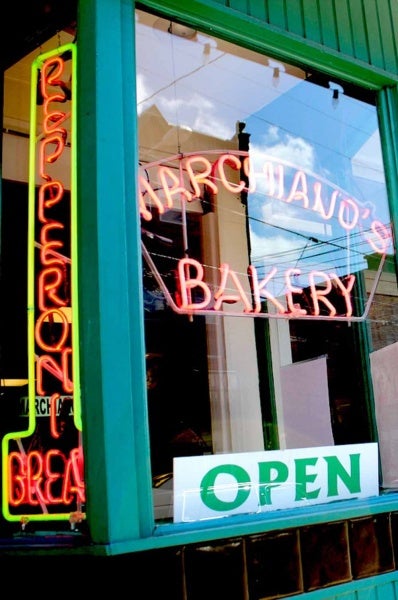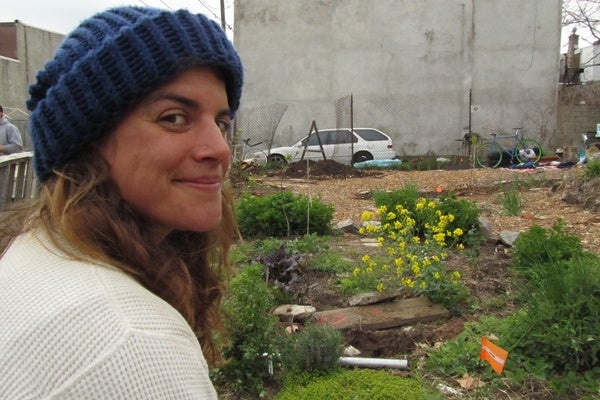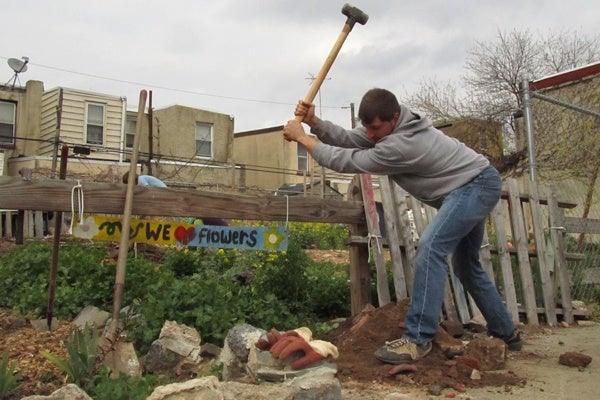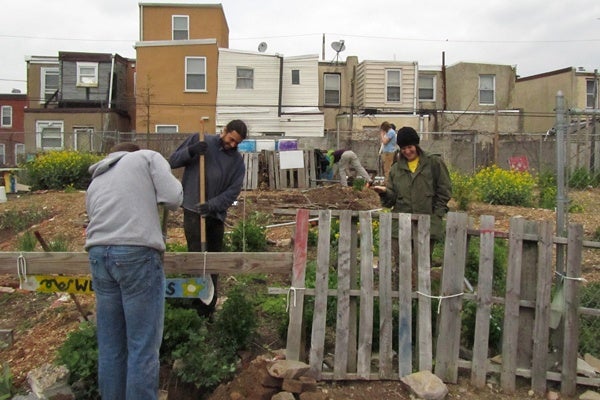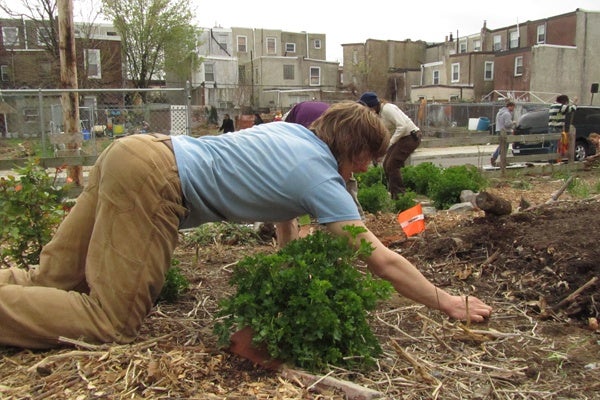A clash of gardening cultures in South Philadelphia
Most of the lots on the South Philly block of Mercy Street between 5th and 6th are vacant. For decades, 17 gaping spaces have been filled with trash, construction debris, and who-knows-what. Crime was never far.
This year it’s filled with worms.
“Bug life, worm life, are good indicators of soil health,” said Zach Powers. “If there are no bugs, it’s probably deadly.”
Powers and his volunteer colleagues — many of whom camped out at City Hall last year during Occupy Philadelphia — are gardening with direct-activism techniques. The Philly Food Forests project aims to turn this blighted block into a biologically diverse, low-maintenance, edible eco-system, a.k.a. a permaculture.
Unlike most urban gardening projects, this one has no plots and no raised beds. Seedlings are put directly into the vacant lot dirt, which is slowly improving through strategic planting and composting.
“People are afraid of soil conditions in the city,” said Robyn Mello, co-founder of Philly Food Forests, now known as Occupy Vacant Lots. “Here we decided we’re working with good soil. It’s something that can be built up over time. There is some lead in the soil, but the levels aren’t dangerous.”
The lots are a mixture of city-owned and privately owned. Mello secured permission from the city to use some of its lots, and one private owner granted them permission. The rest are squatted.
On a Sunday afternoon in early April, a dozen volunteers ripped out a chain link fence separating two adjacent lots, creating a contiguous, 1,800 square-foot space. It’s unclear who put the fence up in the first place. The gardeners didn’t bother to find out.
The quasi-legal project applies Occupy Wall Street’s non-hierarchical philosophy to gardening.
“A traditional community garden is people owning plots. Inside are raised beds,” said Mello. “Here, this is a big collective space. Anybody can come in and plant anything they want, and take care of it as much as they want. Food is free to anybody, even to people who don’t volunteer. We’re running an experiment to see if it works.”
The experiment pushes the honor system into a public space. Mello invites anybody to harvest anything they want, and she says that, for the most part, the space is respected by the neighbors.
One of the those neighbors, Debbie Dupoldt, says the garden has helped the block stave off garbage and crime.
“It was trashed, messed-up looking,” said the Dupoldt. “It looks a lot better like this.” She has not put any labor into the the space because she says she is looking for work.
This garden is near a section of town dense with refugees from Myanmar and Bhutan, many of whom want their own gardens to farm. An aid program called the Nationalities Service Center secures vacant plots from the city for those immigrants to cultivate, some right next to activist’s experimental garden.
However, the Asian refugees prefer traditional raised-bed gardens.
“We just have so many families and such little space, and what they really need is as many vegetables as possible,” said Adam Forbes of the NSC. “So for us the plot structure is the only way to make it work.”
In South Philadelphia, the Nationalities Service Center has made 11 plots available to its immigrant clients, in which 86 families raise vegetables.
WHYY is your source for fact-based, in-depth journalism and information. As a nonprofit organization, we rely on financial support from readers like you. Please give today.












